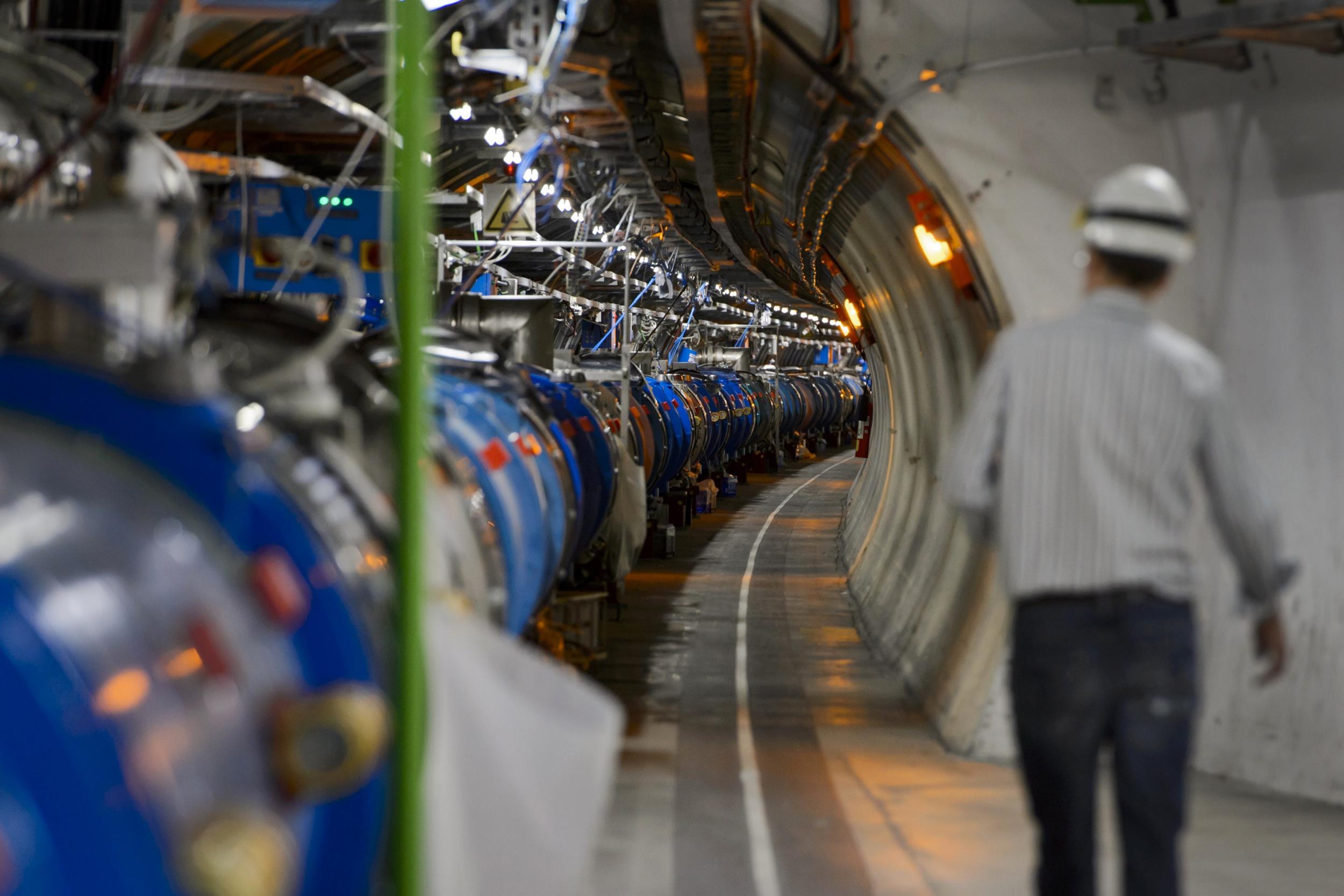CERN's Large Hadron Collider might have discovered a new particle
Much more study is needed before scientists can figure out whether the find is significant or not

The Large Hadron Collider (LHC) at CERN in Switzerland may have discovered a previously-unknown particle.
Due to the nature of particle physics, however, there's still a lot of questions - anomalies, faults and even coincidences have created 'false alarms' in the past, so the scientists will have to study further to check whether the particle is genuine.
However, the find is still compelling - two different teams of physicists at CERN, or the European Organisation for Nuclear Research, both said that they had seen traces of the particle after studying LHC results.
As the New York Times reports, the particle could be a number of things, like a heavier version of the Higgs Boson, the so-called 'god particle' which makes up the theorised field which gives mass to objects across the universe.
It could also be a graviton, a hypothetical particle which if discovered would prove a long-standing theory about what imparts gravity.
Alternatively, it could be nothing, and that appears to be the agreed-upon explanation in the scientific community at the moment.
The points of data that prompted this potential discovery came from an unusually high number of gamma rays produced during an LHC collision, which could possible have been produced by the decay of a new particle. These types of rays were what led to the (tentative) discovery of the Higgs Boson in 2013.
The emitting of gamma rays was not predicted in pre-collision models, which is why it's generated so much excitement, but also why there's currently no explanation for what the origin could be.
At any rate, more will be known in the coming months as more data is analysed by CERN's researchers.
Join our commenting forum
Join thought-provoking conversations, follow other Independent readers and see their replies
Comments
Bookmark popover
Removed from bookmarks